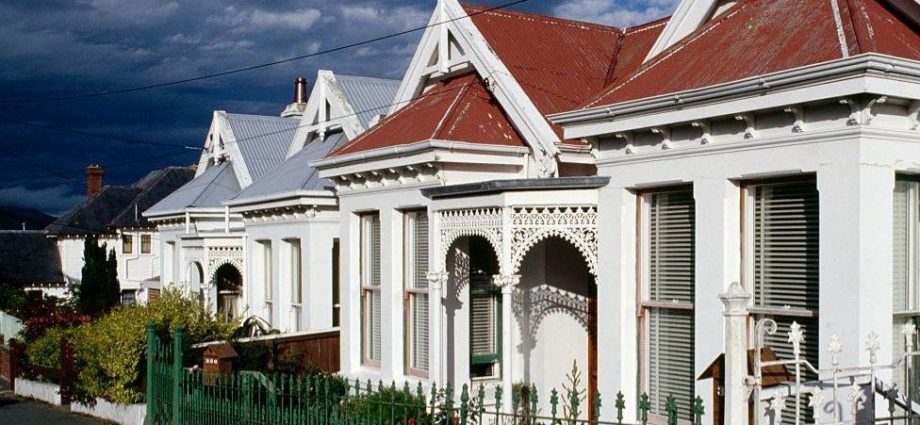PHOTO: NZ property market. GETTY
New Zealand was a world leader at containing Covid-19, but it now leads the world in something less desirable.
It has the most unaffordable housing market among the 36 Organisation for Economic Co-operation and Development (OECD) nations.
Even “dungers” – a local term for run-down houses – are selling for over NZD$1m (£510,000) in Auckland’s most expensive neighbourhoods.
Median house prices surged nearly 23% over the last 12 months to NZ$780,000.
Although New Zealand faced its worst recession in a generation due to the Covid pandemic, its swift lockdown measures worked, and it was one of the first developed economies to start showing signs of economic recovery.
The country also plans to open a travel bubble with neighbouring Australia on 19 April, one of the first glimmers of a return to normal for its important tourism sector.
Like many countries, New Zealand enacted a number of stimulus measures last year, pouring billions into the economy.
Coupled with historically low interest rates, the stimulus stoked an already-strong housing market in New Zealand.
“Housing affordability continues to be one of the ‘big’ issues for New Zealanders looking to get onto the housing market,” said Wendy Alexander, the acting chief executive at the Real Estate Institute of New Zealand (REINZ).
REINZ figures show the median price in Auckland, the country’s biggest city, is now NZ$1.1m, up 24% over the last year.
‘Dungers’ for millionaires
Even “dungers” are not immune to high prices. One sold in the suburb of Avondale for NZ$1.81m in January.
“Common sense would suggest that run-down or derelict properties could sell for a bargain.”
“However, as we’ve seen time and time again, this isn’t always the case in the current market,” Ms Alexander told the BBC.
READ MORE VIA BBC
MOST POPULAR
 Fall in prices ‘possible’ – ASB
Fall in prices ‘possible’ – ASB Cracking down on cartels – including real estate agents
Cracking down on cartels – including real estate agents It’s Beautiful and Virtually Covid-Free. Just Don’t Try to Buy a House in New Zealand
It’s Beautiful and Virtually Covid-Free. Just Don’t Try to Buy a House in New Zealand Grand Designs New Zealand | Medieval Castle – WATCH
Grand Designs New Zealand | Medieval Castle – WATCH Auckland real estate agent guilty of misconduct – struck off for 18 months
Auckland real estate agent guilty of misconduct – struck off for 18 months Abandoned land for sale
Abandoned land for sale Australia’s sexiest real estate agents | A carefully curated catalogue of the hottest agents
Australia’s sexiest real estate agents | A carefully curated catalogue of the hottest agents Fewer people showing up to auctions, open homes
Fewer people showing up to auctions, open homes Real estate agent found guilty
Real estate agent found guilty Asking prices up 16.9% nationally | realestate.co.nz
Asking prices up 16.9% nationally | realestate.co.nz














